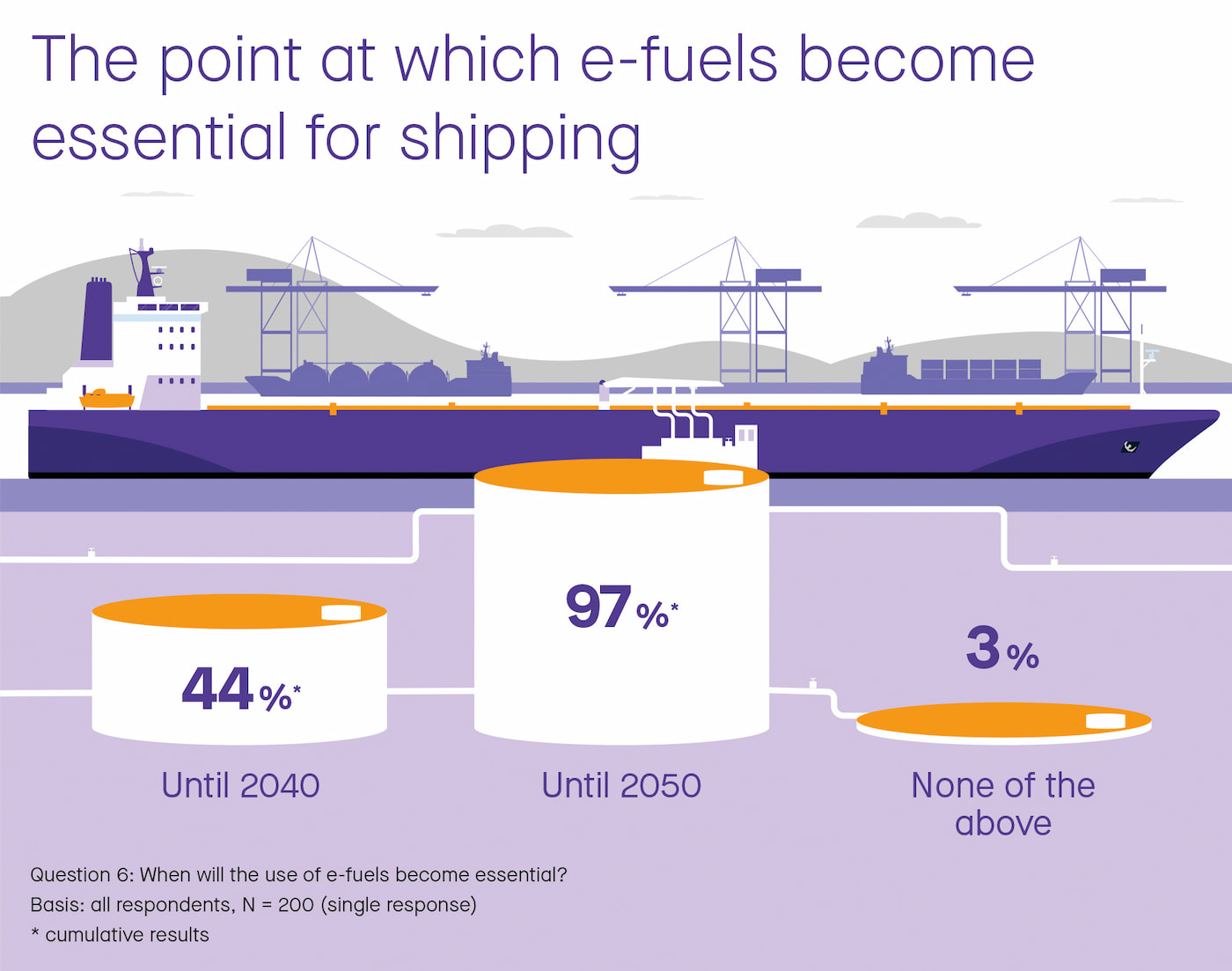Two-thirds of the respondents in a recent Accelleron survey see a competitive advantage in the use of e-fuels and no fewer than 93% of the 200 participants believe e-fuels will make a decisive contribution to more sustainable shipping. Retrofitting existing ships is likely to be the strategy adopted by most companies – 60% – as they decarbonise their marine transport systems and 26% already have plans for technical retrofits, according to the survey.
Implementing the use of e-fuels – potentially climate-neutral fuels made using renewable electricity – is seen as technically complex by 82% of companies. But other fuel options come with a range of disadvantages. LNG may be a good transition fuel but questions remain over methane slip. Renewable hydrogen is expensive to produce, liquefy, store and transport, and is likely to be in high demand from other sectors including the aviation, fertiliser manufacturers, and steel. Owing to weight and charging requirements, batteries are likely to remain a supplementary source of power; methanol takes up a lot of space and in its green form, limited in supply. And ammonia is toxic.
Accelleron CEO, Daniel Bischofberger, noted a range of possibilities but a lack of action. Government funding should provide a kick-start, he said, together with incentives for adopting e-fuels and penalties for using fossil fuels. However, more than 50,000 ships need to find a way forward and doing nothing is not an option.
Related: Damen wins class and flag AiP for methanol-fuelled workboats
He pointed out the benefits of turbocharging and revealed that the next generation of turbochargers will have built-in flexibility for different fuels and maximum efficiency along the entire power curve.
“Accelleron’s goal is to drive decarbonisation in the maritime and energy sectors,” he said, “and we are on the right track. Our survey highlights the great potential of e-fuels for the future of shipping, but we are only at the beginning. The cross-sector focus in the industry and among legislators must now quickly shift to building the right infrastructure for better availability and the right government incentives to achieve long-term cost parity between fossil fuels and e-fuels.”

The study, ‘E-Fuels in the Shipping Industry’, is available on Accelleron’s website.
Copyright © 2023. All rights reserved. Seatrade, a trading name of Informa Markets (UK) Limited.
Reference : https://www.seatrade-maritime.com/ship-operations/e-fuels-and-retrofits-likely-underpin-decarbonisation-drive

